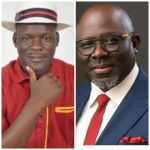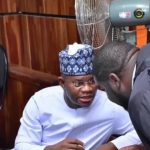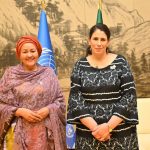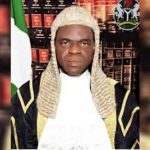Will President Tinubu Return for a Second Term? The Political Reality of Nigeria’s Future.
By Bala Salihu Dawakin kudu
March 13, 2025
As the dust settles from the 2023 presidential elections, there are growing concerns and uncertainties about the future of President Bola Ahmed Tinubu and his chances of securing a second term. While it is still early in his presidency, several issues loom large that could potentially derail his bid for re-election. These concerns go beyond mere political discourse; they strike at the heart of Nigeria’s political and social stability. If care is not taken, President Tinubu may find himself grappling with numerous challenges that could prevent him from returning to power for a second term.
One of the most pressing issues is insecurity. Nigeria is currently facing widespread insecurity, with armed groups, terrorist organizations, and insurgents operating freely in various parts of the country. From the northeastern states to the middle-belt and even parts of the southwest, insecurity is at an all-time high. The country’s security apparatus seems stretched thin, and the ordinary Nigerian is feeling the brunt of this instability. If these issues are not addressed, they could easily erode public confidence in the Tinubu administration, especially if the security situation worsens.
Alongside insecurity is the alarming rate of unemployment and poverty in the country. Nigeria’s youth, in particular, are struggling to find employment, with millions of graduates roaming the streets in search of work. Poverty levels have reached unprecedented heights, with many Nigerians living below the poverty line.
The removal of the fuel subsidy, which was intended to reduce the fiscal burden on the government, has led to increased prices of goods and services, making life even harder for the average citizen. While the government’s intention may be to stimulate the economy in the long term, the immediate consequences have been devastating for many Nigerians, exacerbating the already dire economic conditions.
Furthermore, President Tinubu’s administration has faced criticism for what many perceive as a neglect of the northern region of the country. The north, which played a significant role in getting him elected in 2023, is now feeling sidelined. Many in the north argue that their needs are being ignored, and they feel left out of key decisions being made at the federal level. The lack of representation from this crucial region in key government positions and projects is becoming more pronounced and could have long-term consequences for the administration’s political future.
Equally concerning is the state of the nation’s infrastructure. Many Nigerians are frustrated with the state of the country’s infrastructure, with basic services like electricity, water, and transportation being in a state of disrepair. From failing power grids to dilapidated roads, many parts of Nigeria seem to be “out of service.” The once-promising dreams of a prosperous and modern Nigeria appear to be slipping further out of reach.
But the most significant concern facing President Tinubu is the shifting political dynamics within his own party, the All Progressives Congress (APC). The north, which played a pivotal role in scripting the strategies that helped Tinubu secure victory in 2023, seems to be slowly pulling away from the APC. The dominant faction in the north, the Congress for Progressive Change (CPC), which is the largest faction of the APC, has begun to distance itself from the party. This faction’s influence is undeniable, and the loss of their support could severely weaken Tinubu’s political base in the north. The CPC’s withdrawal from the party could signal a larger trend within the region: the north may no longer fully back the president in his bid for a second term.
In political history, no president in Nigeria has successfully governed without the approval and support of the northern political elite. The political power structures in the north have always been a determining factor in the success or failure of any administration. This makes the current shift in political allegiances all the more troubling for President Tinubu. Those who doubt this reality need only look at the influence and support the north gave him during the election. It was the northern political machinery that made it possible for him to emerge as president, and it is the same northern political structure that seems to be stepping back now.
Many in the north are already looking for alternatives to the APC. The Social Democratic Party (SDP) has seen a resurgence in the region, and some are predicting that this party could be the vehicle for political change in 2027. The idea of a merger between the SDP and other opposition parties is gaining traction, and such a move could prove to be a formidable challenge for the APC in the next general election.
Despite all these challenges, there are those around President Tinubu who are advising him on the importance of addressing these issues. They stress that if he fails to listen to the concerns of the people and the political realities around him, he risks losing the support of the north and, by extension, the entire country. However, it seems that these warnings are not always being heeded. If this trend continues, it is likely that President Tinubu’s chances of securing a second term will diminish considerably.
As the political landscape shifts and the situation in Nigeria continues to evolve, it remains to be seen whether President Tinubu will be able to navigate these challenges successfully. But one thing is clear: if he does not take immediate action to address the growing concerns in the country—especially those coming from the north—his political future may be in jeopardy. In the words of many northern political observers, this may very well be a “one-term presidency” for Bola Ahmed Tinubu. The game is on, and the stakes have never been higher.
Bala Salihu Dawakin kudu from Kano State
08060017934.












